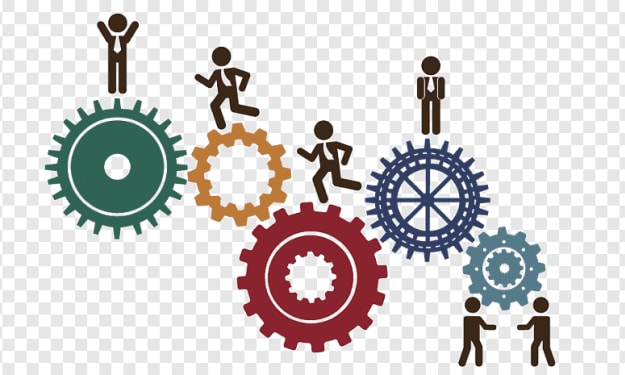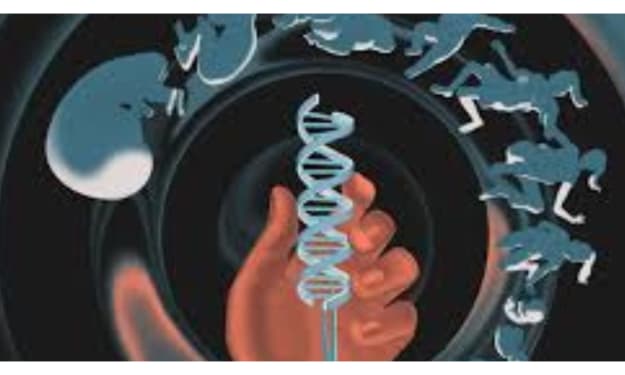Power
Unleashing the Potential Within

Power is a multifaceted concept that has intrigued and captivated humanity throughout history. It is an intrinsic desire within individuals and societies to harness and wield power, shaping the course of civilizations. Power, however, is not merely about dominance or control but encompasses the ability to effect positive change and influence others. In this article, we will delve into the different dimensions of power, exploring its sources, manifestations, and impact on individuals and societies.
Understanding Power (Word count: 300)
Power can be defined as the capacity or ability to act or influence others and shape outcomes. It can stem from various sources, such as wealth, knowledge, social status, charisma, or physical strength. While some sources of power may be inherent, others can be acquired or developed over time. Power can be seen as a dynamic force that flows and fluctuates within social structures, and its nature can vary depending on cultural, social, and historical contexts.
Types of Power (Word count: 400)
Power can be classified into different types based on its manifestation and the relationships involved. One of the most well-known categorizations is French and Raven's five bases of power: coercive, reward, legitimate, referent, and expert power. Coercive power relies on fear and punishment, while reward power is based on the ability to offer incentives. Legitimate power derives from formal authority, referent power from admiration and charisma, and expert power from knowledge and expertise.
Another classification is social power, which can be further divided into personal and positional power. Personal power arises from an individual's characteristics, skills, and influence, while positional power is conferred by one's position or role within a social structure. Understanding these different types of power is crucial to comprehending its dynamics in personal relationships, organizations, and society as a whole.
Power Dynamics and Impact (Word count: 500)
Power dynamics play a significant role in shaping social interactions and relationships. It can be observed in interpersonal relationships, where power imbalances can lead to domination or subjugation, affecting the well-being and autonomy of individuals. Within organizations, power dynamics influence decision-making processes, resource allocation, and employee morale. The misuse of power can result in corruption, exploitation, and social injustice.
Moreover, power has a broader impact on society. Political power determines the governance of nations, influencing policies and shaping the lives of citizens. Economic power influences wealth distribution, economic growth, and social mobility. Social power shapes cultural norms, values, and the construction of identity. The interplay of these different forms of power contributes to the overall power dynamics within a society.
Empowering Individuals and Communities (Word count: 500)
Empowerment is the process of enhancing an individual's or a community's power, enabling them to take control of their lives and shape their destinies. It involves providing access to resources, education, skills, and opportunities that foster self-determination and agency. Empowerment can be achieved through various means, such as education, mentorship, advocacy, and the promotion of inclusive and participatory decision-making processes.
Empowering individuals and communities not only benefits them directly but also has broader implications for society. When marginalized groups are empowered, social injustices can be addressed, and systemic imbalances can be challenged. By recognizing and supporting diverse voices and perspectives, power becomes a tool for positive change and social transformation.
Ethical Considerations and Power (Word count: 400)
The exercise of power raises ethical questions that must be addressed. Power can be misused and abused, leading to exploitation, discrimination, and harm. It is crucial to establish ethical frameworks and accountability mechanisms to prevent the concentration of power in the hands of a few and ensure the equitable distribution of power across
society.
Furthermore, the responsible use of power requires empathy, compassion, and a commitment to the well-being of others. Power should be wielded with humility, respecting the autonomy and dignity of individuals and communities. Ethical leadership and a culture of transparency and accountability are vital for creating a balance between power and responsibility.
Conclusion (Word count: 200)
Power, in its essence, is a double-edged sword that can be both constructive and destructive. It is a fundamental aspect of human existence, with far-reaching implications for individuals, organizations, and societies. By understanding the different dimensions of power, promoting empowerment, and adhering to ethical principles, we can harness the potential of power to drive positive change, foster social justice, and build a more inclusive and equitable world.





Comments
There are no comments for this story
Be the first to respond and start the conversation.